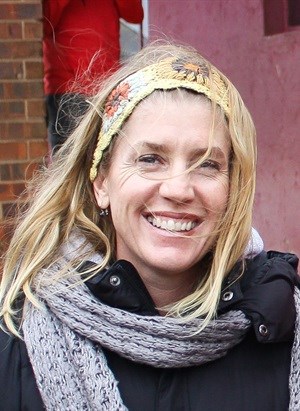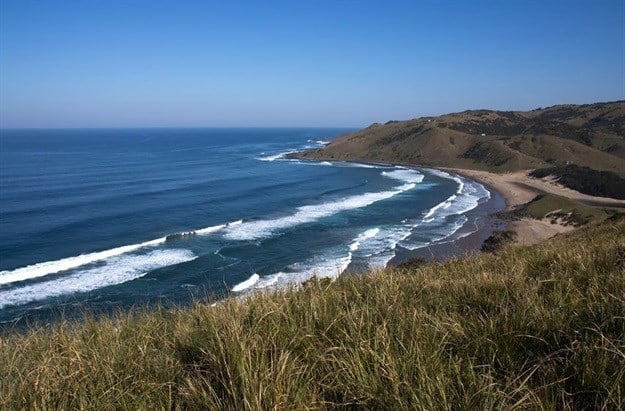The fifth anniversary of the Marikana mine massacre on 16 August 2017 serves as a stark reminder that mining is a very dangerous industry to oppose.
A recent report issued by Global Witness states that “at least 200 people were killed in 24 countries last year in retaliation for standing up to environmentally destructive industrial projects. That’s up from 185 murders in 16 countries in 2015”.1 This amounts to four reported murders every week. Mining is the most dangerous industry to oppose with at least 33 of these murders linked to the mining sector.2
Women in the firing line
Women are increasingly in the firing line. Lebogang Ngobeni, from the Fuleni Reserve in Kwazulu-Natal, recently received death threats warning that she will be killed for appealing a proposed bridge and road development that will open the area to mining. Other Fuleni activists whose lives have been threatened include Phila Ndimande and Billy Mqondo for leading opposition against a proposed open cast coal mine on the boundary of the Hluhluwe iMfolozi Park, a sanctuary with the world’s highest concentration of threatened Southern White Rhino. Phila, Billy and Lebo live with the awareness that their lives hang in the balance, knowing how dangerous it is to stand up for environmental justice, and for human rights.
The United States Environmental Protection Agency defines environmental justice as: “the fair treatment and meaningful involvement of all people regardless of race, color, national origin, or income, with respect to the development, implementation, and enforcement of environmental laws, regulations, and policies”.3
Threats, intimidation and death
In South Africa, defenders of environmental justice and social and political change are threatened, ridiculed, marginalised and punished. There have been many situations in the struggle against coal mining and other intrusive development in rural areas that have resulted in threats, intimidation and death. People’s houses and cars are burnt. Many have been murdered and the perpetrators get away unapprehended and unpunished.
Nonhle Mbuthuma, spokesperson for the Amadiba Crisis Committee (ACC), has spent more than ten years defending her community’s land rights on the Pondoland Wild Coast against an international mining company. ACC are also fighting our government and Sanral who want to build a national highway over their land that will facilitate titanium mining of the protected Xolobeni dunes. Nonhle's life is constantly at risk as she is on the same hit list that fellow murdered activist “Bazooka” Sikhosiphi Rhadebe was on. Bazooka was murdered on 22 March 2016, the day after Human Rights day.
Fighting for the right to a healthy environment

Kirsten Youens, attorney specialising in environmental law and environmental justice
As activists for social and environmental justice, we defend human and environmental rights, fighting for the right to a healthy environment, to clean water, to land and the right to life. As a result, we often clash with political and business interests, with corporations that take over land and natural resources for their own gain. The mining laws of our country make it particularly easy for them to do so. In acting against these powerful forces, we are often subject to the growing list of corporations or governmental departments that “marginalise defenders, branding their actions ‘anti-development’. Many defenders face years of death threats, criminalisation, intimidation and harassment, but receive little or no protection from authorities”.4
Our government, from local to national level, often turns a blind eye to intimidation and lack of compliance with the law. This is particularly noticeable in KZN where the land falls under the control of the Ingonyama Trust Board (ITB).4 Government structures show reluctance to interfere in areas where the ITB, the traditional councils and the Indunas have control. What they are effectively doing, as is the case in many other countries of the world, is “permitting a level of impunity that allows the vast majority of perpetrators to walk free... Incredibly, it is the activists themselves who are painted as criminals, facing trumped-up criminal charges and aggressive civil cases brought by governments and companies seeking to silence them”.5
SLAPP
There are many ways to silence people and an intimidation tactic that is increasing in frequency and often used by corporations or developers against individuals or organisations that oppose their actions is to institute strategic lawsuits against public participation (SLAPP). These lawsuits are a strategic move brought solely to censor, intimidate, and silence opposition. The typical goals of a SLAPP are for the defendant to succumb to intimidation, fear, high legal costs or simple exhaustion and ultimately abandon the cause for which they are fighting.
Such lawsuits have been made illegal in many jurisdictions on the grounds that they impede freedom of speech. Unfortunately, such suits are not yet illegal in South Africa. SLAPPs take various forms, but the most common is a civil suit for defamation. Recently, two attorneys from the Centre for Environmental Rights in Cape Town, were served with defamation suits for comments they made about the environmental harm caused in the Western Cape by Tormin mine, owned by ASX-listed Australian company Mineral Resources Commodities Ltd (MRC). This is the same company wanting to mine the Xolobeni dunes on the Wild Coast.
Environmental defenders and environmental justice activists in South Africa make up a dedicated, committed and extremely brave group that is growing. Nonhle’s bravery is renowned: “...when they kill me they must kill me alone, not my family”. And while we are not easily intimidated, whatever intimidation does come our way only makes us more committed to our cause.
Sources:
1 Defenders of the Earth: Global killings of land and environmental defenders. Published in the Global Witness, 13 July 2017. https://www.globalwitness.org/en/campaigns/environmental-activists/defenders-earth/
2 Mongabay Series: Endangered Environmentalists; by Mike Gaworecki, published 13 July 2017. https://news.mongabay.com/2017/07/2016-was-even-deadlier-for-environmental-and-indigenous-activists-than-2015/
3 Environmental justice. EPA. https://www.epa.gov/environmentaljustice
4 The Ingonyama Trust is a corporate body established in law established in 1994 by the KwaZulu Ingonyama Trust Act, 1994 to hold the land in title for “the benefit, material welfare and social well-being of the members of the tribes and communities” living on the land. His Majesty, King Goodwill Zwelithini, is the sole Trustee of the land.
5 Defenders of the Earth: Global killings of land and environmental defenders. Published in the Global Witness, 13 July 2017. https://www.globalwitness.org/en/campaigns/environmental-activists/defenders-earth/







































